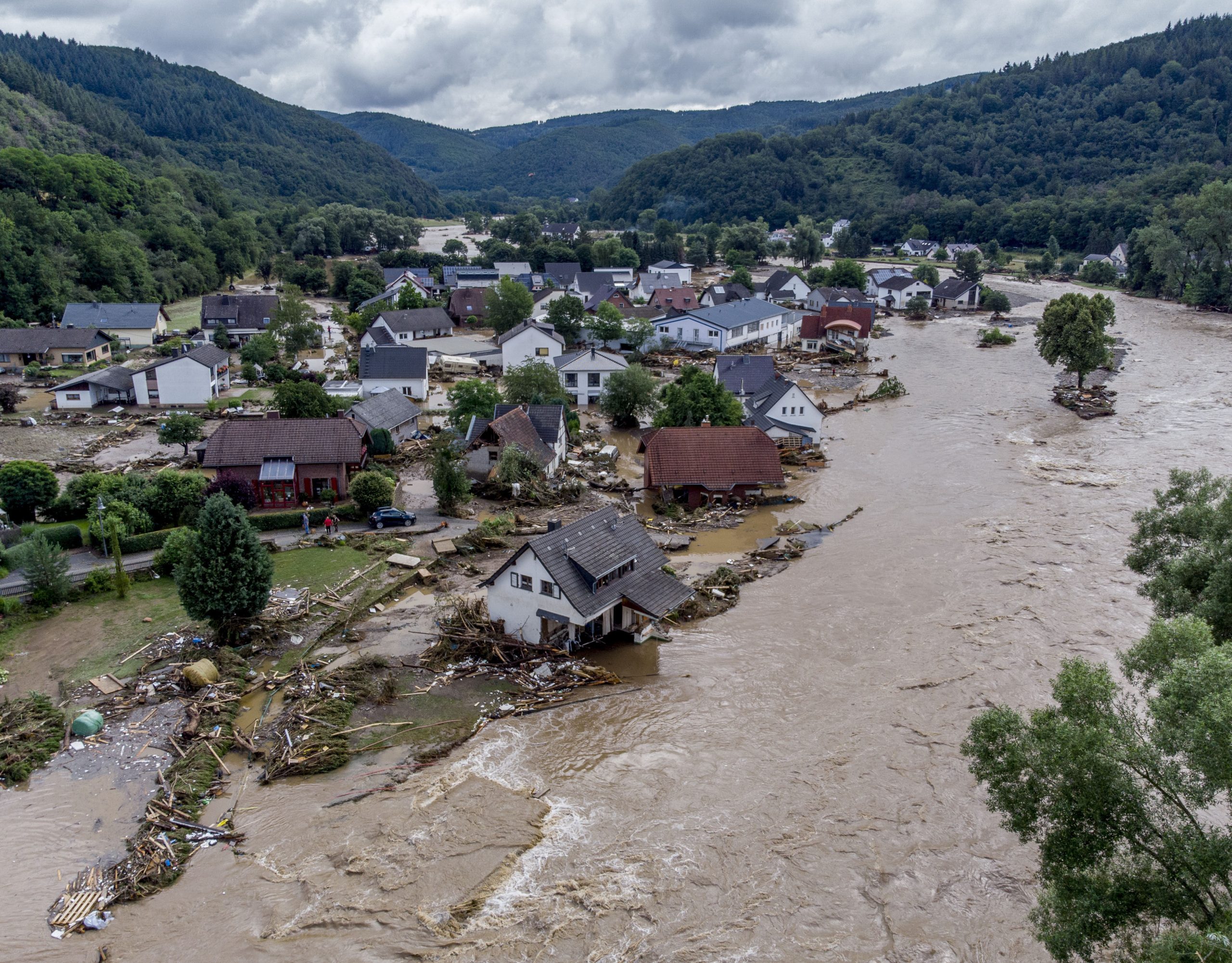With the country battered by the devastating floods, German Chancellor Angela Merkel’s government approved a massive emergency aid package on Wednesday to aid the worst-hit regions and further added that billions would be needed to rebuild homes, businesses and vital infrastructure.
The region’s worst flooding disaster in living memory has killed at least 174 in Germany and 32 more in Belgium in just over a week.
Meanwhile, according to a Guardian report, at least 155 people remain missing a week after record rainfall caused devastating floods. The president of the country’s disaster relief organisation said she “did not expect” rescuers to find any more survivors.
“We are currently still searching for missed ones as we are clearing debris or pumping out cellars,” said Sabine Lackner of the federal agency for technical relief, a volunteering organisation belonging to the German ministry of the interior.
ALSO READ | Is global warming behind the floods in Germany?
“But sadly at this stage it is very likely that victims can only be recovered and not rescued,” Lackner told RedaktionsNetzwerk Deutschland.
However, to provide some immediate relief, the right-left “grand coalition” government unlocked some 400 million euros ($470 million).
Half will come from the federal government of Europe’s top economy and the rest from the 16 regional states, Finance Minister Olaf Scholz said.
“We will make sure that life can go on,” Scholz told reporters in Berlin.
He said the coming months would bring a “billions-strong reconstruction programme to clear the devastation and restore infrastructure” including roads, bridges and railway lines.
“We will rebuild — rebuild businesses, rebuild factories, rebuild buildings,” he said. The government said it would apply for assistance from an EU “solidarity fund” set aside for natural catastrophes.
The damage caused by the floods is likely to cost the insurance sector up to five billion euros ($5.9 billion), the GDV industry association said, calling the disaster “one of the most devastating storms in recent history”.
As fewer than half of Germans in the impacted regions are insured against severe rain and floods, the true cost is likely to be significantly higher, according to the organisation.
Many communities remained without power and potable water, and mobile communication networks were still down.
Merkel, who is retiring this year after 16 years in power, said her government would do everything in its power “so that the money is with people fast”.
“I hope it will be a matter of days,” she said, noting that she had met local victims “left with nothing but the clothes on their backs”.







